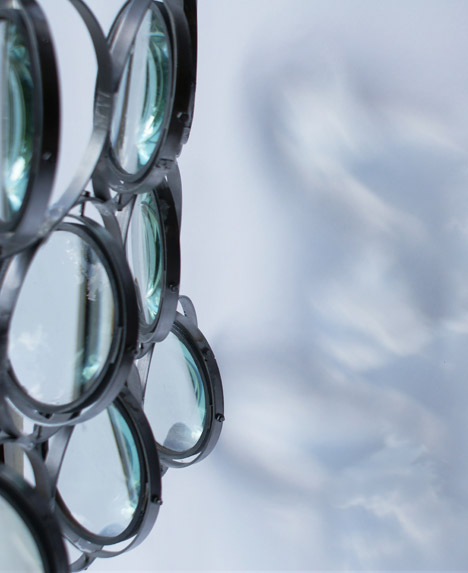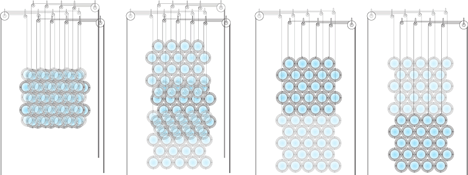Kine Solberg's window panels made with lenses create distorted views
Graduate designer Kine Solberg has created window panels from circular glass lenses that manipulate images of the landscape reflected across their surfaces (+ slideshow).
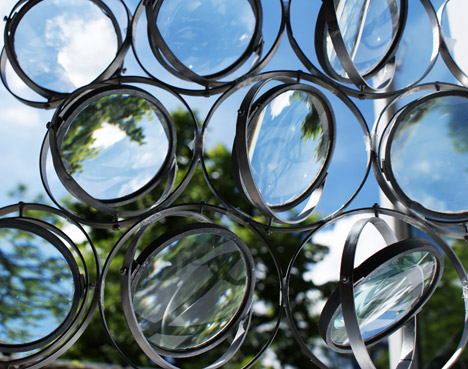
Solberg aimed to optimise the amount of light entering through a glass surface, so formed the panels from a series of rotating lenses that also distort the view through their surface.
"Lenscape is an exploration of the window as a basic architectural element and the way it can be designed into an interactive feature in the interior," said Solberg.
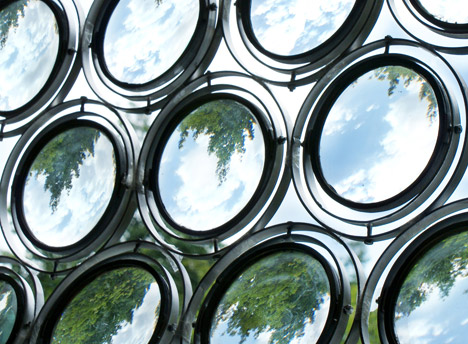
"What Lenscape aims to achieve, is the design of a new interpretation of the window as a filter, be it in the sense of daylighting, or in relation to the framed view."
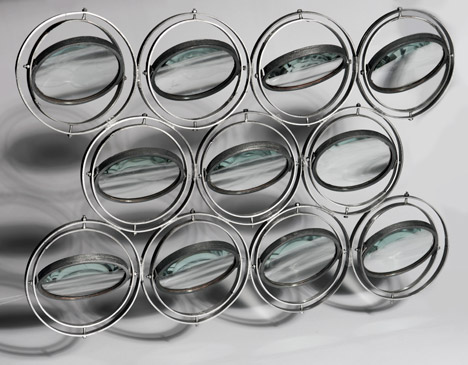
Circular convex lenses are suspended within two concentric metal frames to form a gimbal mechanism – a system that allows rotation around more than one axis.
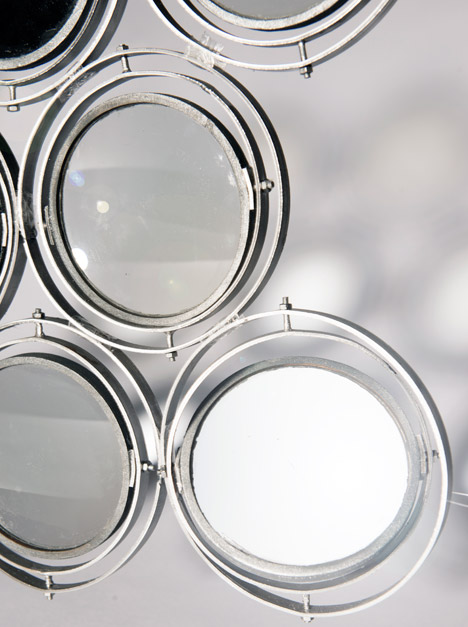
Pivot points at the top and bottom connect the glass pieces to the first frame, then further connections on either side join this middle frame to the outer ring.
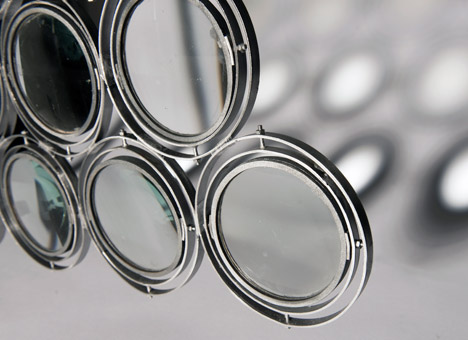
This system allows each lens to pivot in all directions, creating a pattern of different views when joined together into a screen.
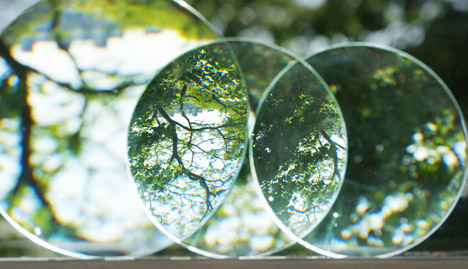
"Instead of seeing one image, you see several, each lens showing a different fragment of the view, together providing several interpretations of the same image," said the designer.
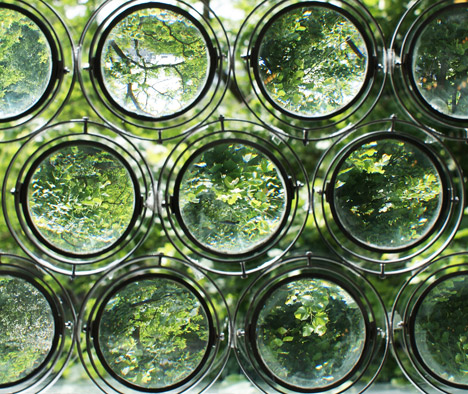
Due to the convex shape of each lens, more of the reflected light is captured so a wider view of the scene is visible. The shape also flips the projected image upside down.
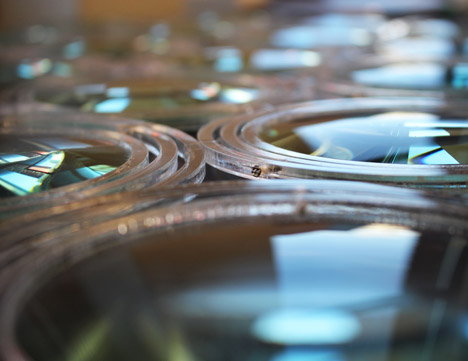
A prototype was made in metal, but the chunky rings prevented some light entering through the panel so another version was created in PMMA acrylic glass.
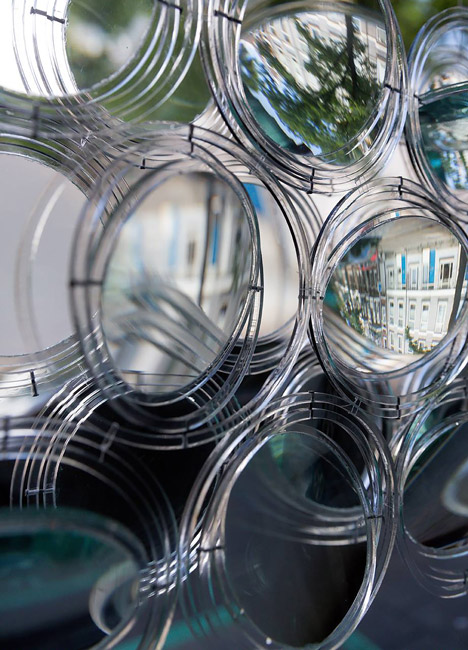
Mounted together, the lenses are suspended on nylon wires and attached to a pulley system so they can be moved up and down.
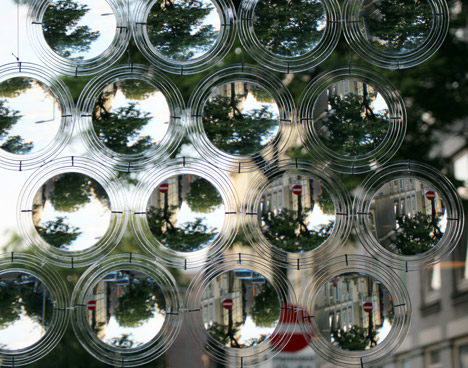
Multiple screens can be layered in front of each other to further manipulate the views.
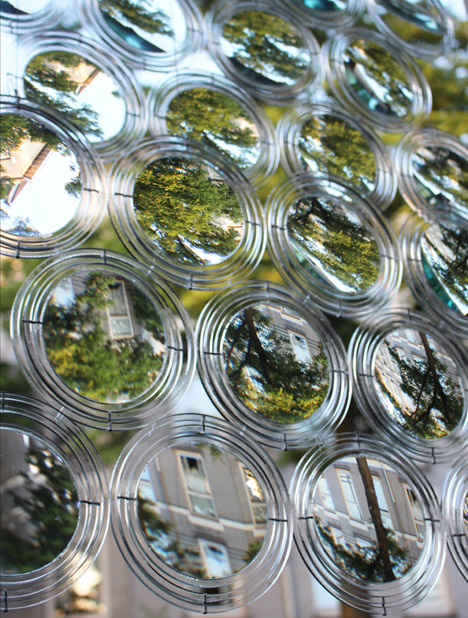
Solberg displayed the project as part of the Master of Interior Architecture and Retail Design (MIARD) graduate show at the Piet Zwart Institute.
